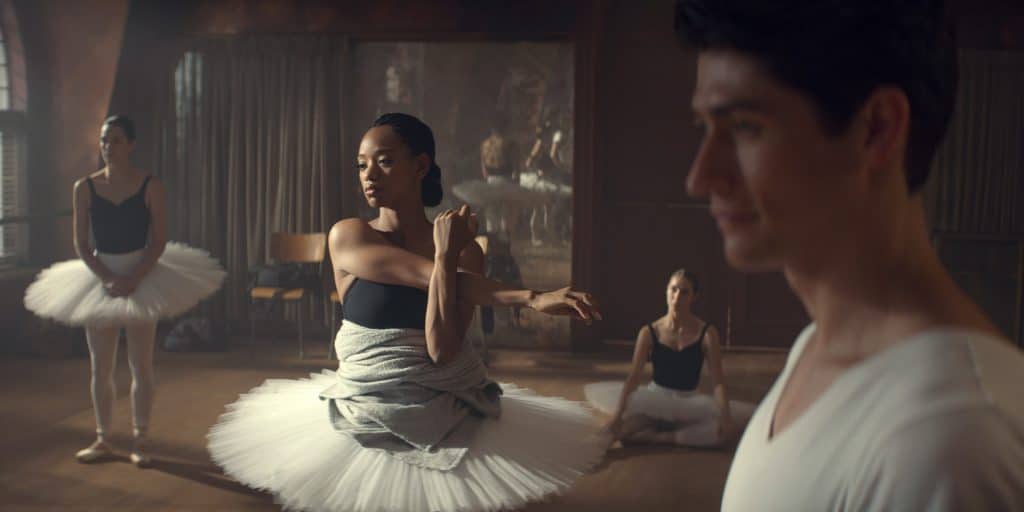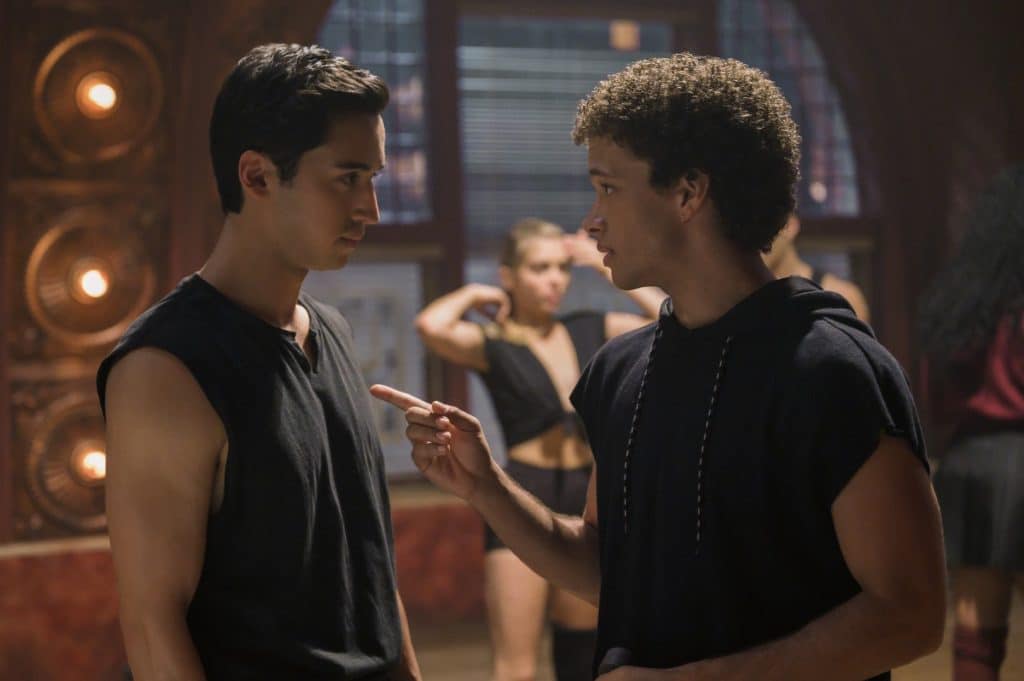Read also:
How to Watch FX Live Without CableHow To Watch AMC Without CableHow to Watch ABC Without CableHow to Watch Paramount Network Without CableNetflix blends Pretty Little Liars and Black Swan into a scintillating if overstuffed series about the pressures of performance.
When I saw that Netflix made all ten hour-long episodes of its new ballet show, Tiny Pretty Things, available to review, I was intimidated. Even during a global pandemic, ten hours of uninterrupted solo TV time can be hard to come by on short notice. Luckily, Tiny Pretty Things was built to be binged. Fast-paced and drama-filled, the story whisks viewers away from their own lives and plunges them into a grim, seedy world of backroom dealings, sexual blackmail, Machiavellian schemes, and, finally, ballet.
If anything, Tiny Pretty Things packs in so many criss-crossing subplots that I feared if I glanced away from the screen to check my phone for a moment, I’d miss a major development. While I admired the diverse array of characters the show assembled, the overstuffed-feeling story was at times overwhelming, leaving little time for significant moments to land, and less time for dancing than viewers might wish.
The plot kicks off with a bang in the very first scene, when teen ballerina Cassie Shore (Anna Maiche) is pushed from the roof of the prestigious (and entirely fictional) Archer School of Ballet in Chicago, by a hooded assailant who hands her a single white rose during the attack. The rose becomes the first clue in the mystery of the attempted murder. Cassie, hovering between life and death in a coma, also provides narration for most of the series.
These facts alone, and the show’s familiar-sounding title, might lead one to believe that Tiny Pretty Things is just Pretty Little Liars with a heavy dose of ballet thrown in for good measure. I’ll admit to expecting something along the lines of Riverdale or another CW drama myself. However, Tiny Pretty Things is much more ambitious and much more sordid. For its nudity and sometimes graphic sex scenes, as well as frank depictions of self-harm, including eating disorders, the show has much more in common with Euphoria or its predecessor, the British hit Skins. Tiny Pretty Things’ sex and nudity aren’t included for shock value, though—or at least, not exclusively. The show utilizes its familiar premise to explore the way the world of dance exploits the fragile bodies and lived traumas of young performers.

Neveah Stroyer (Kylie Jefferson) arrives at the Archer School in the wake of Cassie’s fall to take her place in classes, and move into the dorm where she lived. Though at first Neveah naively believes that the Archer administrators chose her solely because of her remarkable talent, she soon realizes that she was chosen to be “good press” for the embattled school, as their only black female dancer. Headmistress Madame duBois (Lauren Holly) seems particularly eager to show Neveah off to reporters, even incorrectly stating that the dancer is from Compton while dismissing her coldly in private.
Back in the dormitories and on the barre in class, the mostly-white teen ballerinas close ranks and ice Neveah out, taking cues from queen bee Bette Whitlaw (Casimere Jollette). Bette’s older sister Delia (Tory Trowbridge) is a star ballerina for the (also fictional) Chicago City Ballet, and the Archer’s most famous alum, and now their ruthless mother Karina (Michelle Nolden) is campaigning for even more power and influence at the school. Bette is threatened by Neveah’s obvious talent, and from their first meeting, they become fast frenemies, constantly pushing each other to become better performers.
Before Tiny Pretty Things, Jollette already had a handful of acting credits to her name, but Kylie Jefferson seems to be a total newcomer to acting. I found both of their performances to be very interesting and believable, adding a much-needed emotional grounding to the chaotic, back-stabbing world of the show. Jefferson is immensely likable as passionate, headstrong Neveah, while Jollette brings an intriguing fragility to the table as her sometimes-ally, sometimes-opponent, Bette. It goes without saying that they’re both outstanding dancers—at least, to the eyes of this non-professional.
For the most part, the entire cast of dancer-actors acquit themselves very well, even if they’re forced to deliver occasionally cheesy lines of dialogue. (Though, personally, I’m all for lines like “You better fucking dance” being delivered without a shred of irony.) Another standout character is CATS’ Daniella Norman as Neveah’s roommate June Park, a talented ballerina whose overbearing mother routinely rips her self-esteem to shreds.
There are worse ways to spend an afternoon than watching hot people dance.
The company is rounded out by a variety of other student-dancers, including Bette’s boyfriend, Oren (Fosse/Verdon’s Barton Cowperthwaite), who struggles with bulimia; the insecure, but kindly, queer kid Shane (Brennan Clost); bitter former military brat, Caleb (Damon J. Gillespie of Rise); and Nabil (Michael Hsu Rosen), a Muslim immigrant from France, and the most talented of the bunch.
Even after cataloguing all of this, there are so many subplots that happen between these characters and still a dozen other people that I haven’t even mentioned. An attempt to graph the show’s various love triangles would end up looking like an evidence dungeon yarn web of conspiracy theories. Ten episodes of Tiny Pretty Things felt like a jam-packed twenty-two episode season from the early 2000s, along the lines of Season One of The O.C. or Friday Night Lights. The incredibly athletic dance scenes also invite comparison to sports stories.
That said, I appreciated how the show set itself apart by earnestly depicting how students and dancers from marginalized backgrounds are treated differently than their white peers. Neveah is not alone in being a near-constant target for passive-aggressive discrimination and belittlement. Choreographers and dancemasters call out Shane for dancing in a way they find too effeminate, humiliating him repeatedly in front of his classmates. These same teachers pass over June entirely, assuming her to be a quiet and meek Asian stereotype, below their notice. Nabil, the only student of devout faith, quickly becomes the police’s first major suspect in Cassie’s fall. These are all anecdotal examples of deep-seated problems across many disciplines of art, and their inclusion felt warranted and urgent.
The ballet dance sequences are impressive, and I found myself looking forward to them more and more as the story grew darker. A lot of times fictional works of art that exist within other stories can feel fake or unrealistic, but it’s genuinely interesting to watch the ballet Ripper evolve through rehearsals into something that feels fully realized. I’ll refrain from going into greater detail to keep from spoiling the mystery of who pushed Cassie—and why—but the show did a very clever job keeping the ballet and investigation plotlines intertwined through the season finale, when everything culminates at a climactic opening night performance.

There’s plenty that could have been trimmed from the not-so-tiny saga of Tiny Pretty Things. Cassie’s narration from her comatose state is heavy-handed and often cheesy, and feels like a leftover snatched from Pretty Little Liars’ plate. The show does a much better job incorporating Cassie in spooky, surreal nightmare sequences that almost every character experiences throughout the season. There’s also a cop (Jess Salgueiro) obsessed with solving the case, who is saddled with so much tragic backstory that it almost feels comically overblown.
The subplots that work really work though. It’s enjoyable to see so many expected ballet tropes included—harsh dancemasters! Mean moms! Sexual chemistry between partners! The ballet’s story lining up with the dancers’ lives!—and then turned on their heads. Choices like making one of the most outwardly masculine dancers in the company the one to struggle with an eating disorder kept the story from feeling too stereotypical, and explored less-seen but equally valid experiences.
Tiny Pretty Things may be somewhat overstuffed, but ultimately, that’s exactly what’ll have viewers slamming the “Next Episode” button every time the credits hit. There are worse ways to spend an afternoon than watching hot people dance. Tiny Pretty Things didn’t need to be more than that, but somehow, it is.
Tiny Pretty Things plies onto Netflix December 14th.